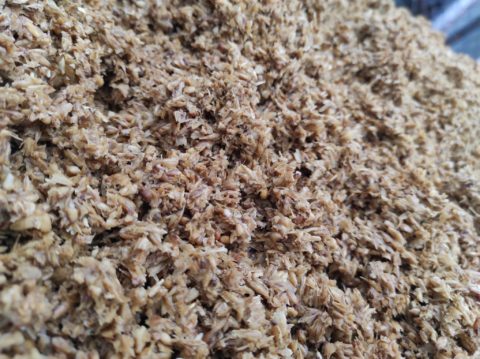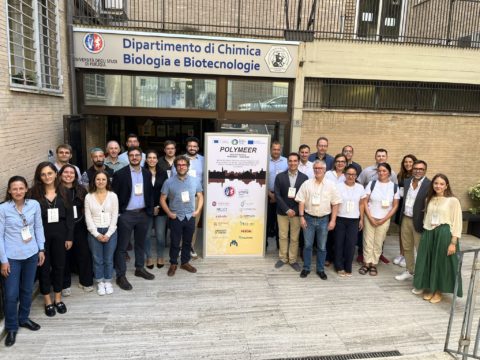
The project, funded by the Circular Bio-Based Europe Joint Undertaking HORIZON program, will establish a sustainable bio-based value chain for bioplastics.
AIMPLAS is part of an international consortium including academic institutions, research centres, and companies from 8 countries.

Currently, bioplastics represent only 1.5% of global plastic production, with projected growth insufficient to meet market needs. Brewers’ spent grain (BSG), which is rich in fibre and protein, is mostly used as low-value animal feed or discarded in landfills, contributing to environmental issues. BSG has the potential as feedstock for bioplastics, however, current applications are limited by poor mechanical properties and lack of scalability.
The aim of the POLYMEER project is to establish a sustainable bio-based value chain for bioplastic products. Through the efficient conversion of wet brewers’ spent grain into high added value materials, the project will diversify the array of innovative material solutions capable of replacing traditional plastics. AIMPLAS, the Plastics Technology Centre, participates in this project that seeks to address these challenges by developing high-value uses for BSG in bioplastics to replace fossil-based feedstocks.
POLYMEER will develop new bio-based polymers, copolymers and polymer blends based on BSG exploiting green, waste-minimized processes, expanding innovative alternatives to traditional plastics. The materials will undergo precise chemical design to meet a specific set of properties for three targeted applications: mulch films suitable for agricultural use, textile for the automotive industry, and tertiary packaging films for industrial purposes. All products will be designed to be recycled and/or biodegraded in specific environments.
Over its 48 months, the project will focus on optimizing the conversion of BSG into bio-based building blocks, creating high-performance bioplastics than can compete with conventional materials. It will also assess the life cycle sustainability, cost-effectiveness, and scalability of these solutions, while engaging key stakeholders to ensure market readiness and regulatory compliance.
To achieve the ambitious goals of POLYMEER over the next four years, an international consortium including academic institutions, research centres, and companies from 8 countries has been set up: Italy (Università degli Studi di Perugia, Università degli Studi di Roma La Sapienza, Next Technology Tecnotessile –NTT, Birra Peroni), Belgium (Bio-Base Europe Pilot Plant, Zabala Brussels, Normec OWS), Spain (Lomartov, AIMPLAS), Croatia (Bio-mi), Netherlands (Universiteit Twente), Portugal (Borgstena), and Denmark (Gate2Growth).
Funded by the Circular Bio-Based Europe Joint Undertaking HORIZON program under Grant Agreement nº 101157411, POLYMEER will run for 48 months starting 1st September 2024. The project has received 4.9M€ in funding and involves 14 partners, coordinated by Università degli Studi di Perugia (UNIPG).
